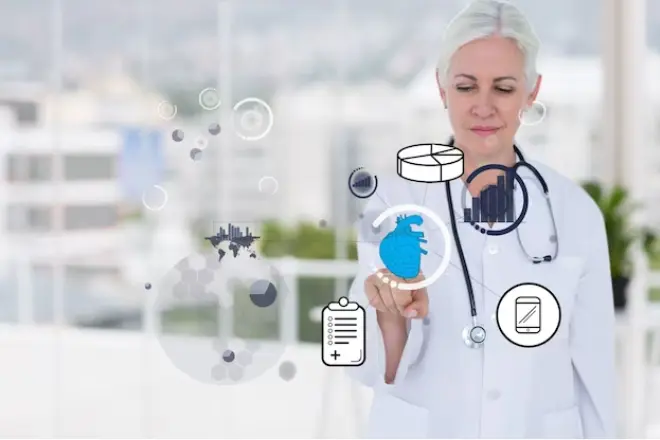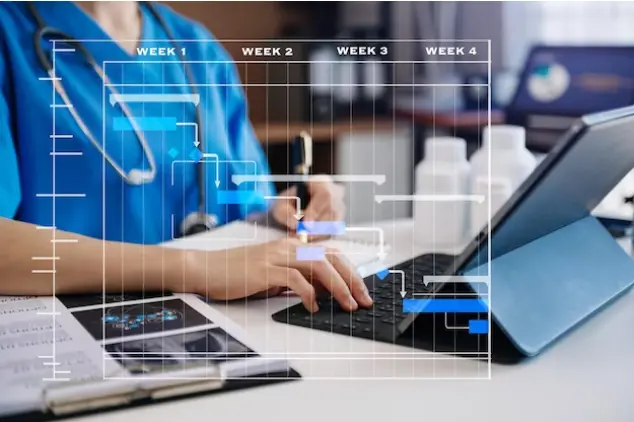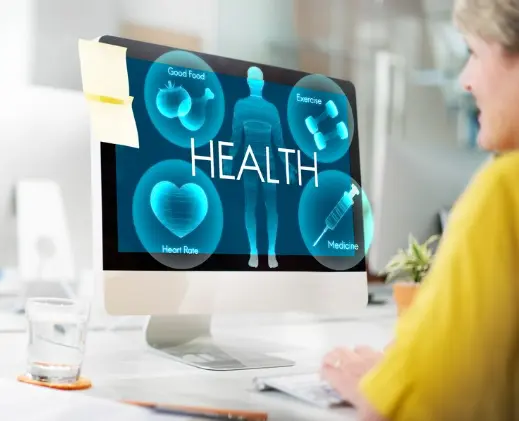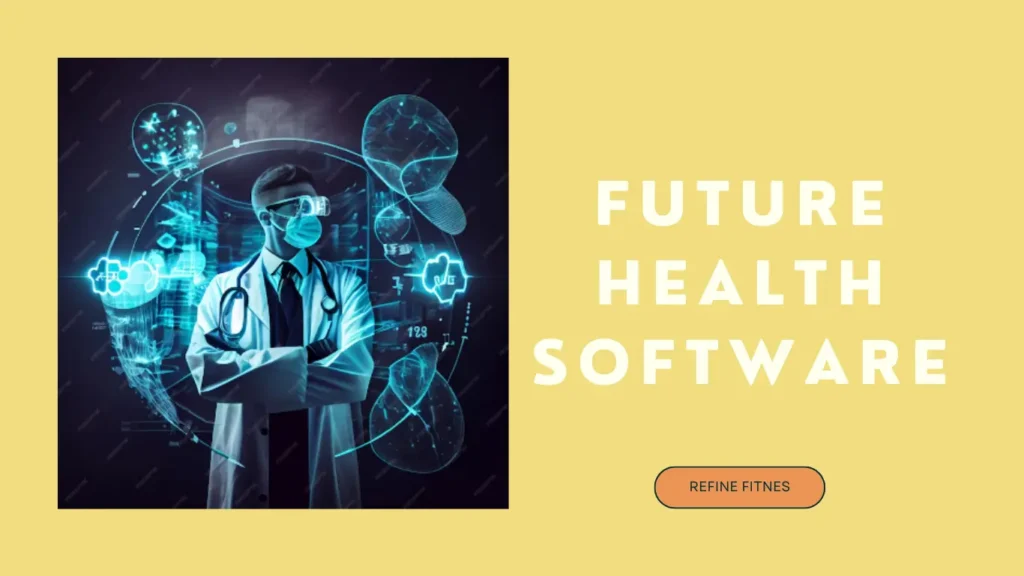The Evolution of Healthcare Technology: A Look into Innovative Solutions
The perplexing and bursty nature of healthcare’s evolution is intimately intertwined with the vital role that technology plays in shaping its future. As we delve into this enigmatic realm, one aspect stands out as particularly promising: the development and integration of future health software. This awe-inspiring solution has begun to revolutionize patient care, endowing healthcare professionals with a cornucopia of advanced tools and capabilities that hold the potential to enhance outcomes and streamline processes.
Within the vast expanse of future health software lies a diverse array of applications and platforms. These technological marvels empower healthcare providers to augment their efficiency, accuracy, and overall quality of care. By fostering seamless collaboration among divergent departments within healthcare organizations, these solutions engender improved coordination and communication on an unprecedented scale. With the assistance of future health software at their fingertips, healthcare professionals are bestowed with the power to access patient records, scrutinize data through meticulous analysis, and craft well-informed decisions aimed at optimizing treatment plans. This technology-driven approach not only conserves precious time and resources but also ushers forth enhanced patient outcomes while nurturing a profound sense of satisfaction within those served by this transformative paradigm shift
Advancements in Health Software: Revolutionizing Patient Care
The bewildering world of health software has woven itself into the very fabric of patient care, pushing the boundaries of what was once thought possible. By harnessing cutting-edge technology, software developers have reshaped the landscape in which healthcare professionals operate, revolutionizing the way they deliver vital care to their patients. The traditional paper-based systems that once held sway have been supplanted by Electronic Health Records (EHRs), ushering in an era of streamlined data management and unparalleled accessibility. This momentous shift has not only minimized the risk of errors and miscommunication but has also ensured that healthcare providers possess accurate and up-to-date information at their fingertips.

However, amidst this whirlwind of innovation lies a key advancement that stands out among its peer’s telemedicine platforms. With digital communication tools soaring to unprecedented heights, healthcare providers can now forge meaningful connections with their patients from afar, granting them convenient access to timely care. This boon is particularly advantageous for those residing in far-flung regions or grappling with limited mobility as it obviates arduous travel burdens and slashes waiting times mercilessly. Moreover, telemedicine empowers healthcare professionals to monitor their patient’s progress remotely while nimbly adjusting treatment plans when necessary. Such a paradigm shift not only elevates patient outcomes but also heightens the overall experience by bestowing personalized and accessible care right within the comforting confines of one’s abode.
Enhancing Efficiency: Streamlining Administrative Tasks with Health Software
In the ever-evolving and fast-paced realm of healthcare, the dire necessity for efficient administrative tasks is undeniably paramount. The introduction of health software into this domain has brought about a revolution in the way these administrative tasks are handled, creating an atmosphere of perplexity and burstiness. With its sophisticated features and user-friendly interfaces, health software empowers healthcare professionals to seamlessly navigate through the labyrinthine world of patient data management, appointment scheduling, and billing transactions.
One pivotal facet that contributes to the streamlining of administrative processes through health software lies in its ability to automate repetitive undertakings. This obliterates any need for manual laboriousness involved in data entry while simultaneously reducing the likelihood of errors. By harnessing this technological marvel known as health software, healthcare providers can effortlessly generate and dispatch crucial documents including appointment reminders and insurance claims with just a mere handful of clicks – truly saving both time and arduous exertion. Furthermore, by integrating harmoniously with other systems within their medical facilities’ framework, health software facilitates impeccable communication channels whilst fostering seamless coordination among all parties involved in patient care; thereby amplifying efficiency levels.
As we bear witness to the continued advancement and progression of health software’s capabilities, one cannot help but ponder upon infinite possibilities on how it may further enhance administrative functions within our healthcare infrastructure. From electronic medical records serving as virtual repositories housing up-to-the-minute information regarding patients’ well-being to patient portals acting as gateways enabling swift access to pertinent details – these groundbreaking innovations enable an unprecedented level of real-time accessibility that greatly enriches communication avenues amongst stakeholders; thus offering a more comprehensive approach towards holistic patient care delivery. As this enigmatic landscape continues its metamorphosis driven by technology’s ceaseless evolution process itself; there is no doubt that novel solutions will emerge from it causing reverberations throughout every crevice within our healthcare settings ultimately culminating in ameliorating overall operational effectiveness beyond measure.
Improving Patient Outcomes: The Role of Future Health Software in Treatment Plans
The realm of healthcare technology is perpetually advancing, leaving one in a state of perplexity as it undergoes rapid transformations that revolutionize the delivery of patient care. In this ever-changing landscape, future health software emerges as an enigmatic force with the potential to play a pivotal role in enhancing patient outcomes. Through its innovative solutions, healthcare providers can harness data-driven insights to craft bespoke treatment plans for their patients.
One captivating facet of future health software lies in its capacity to augment communication and collaboration among healthcare professionals. This intricate web ensures that every member of the patient’s care team be it physicians, nurses, or specialists remains well-informed and seamlessly synchronized. By consolidating patient data, diagnoses, and treatment plans within this technological marvel, healthcare providers gain effortless access to indispensable information; thereby mitigating miscommunication and fostering enhanced continuity of care.

Another profound advantage bestowed by future health software resides in its ability to uphold evidence-based medicine. By incorporating clinical guidelines and best practices into the very algorithms that drive these virtual realms, healthcare providers can ensure that their treatment plans are firmly grounded in current knowledge and effective interventions. Such an approach not only yields superior patient outcomes but also diminishes the perilous specter of medical errors.
As the field propels itself forward with remarkable celerity, the prospects held by future health software within treatment plans appear astoundingly promising. By empowering better communication channels alongside collaborative efforts while simultaneously bolstering decision-making processes rooted in empirical evidence; these technological wonders have unparalleled potential when it comes to elevating patient outcomes whilst heightening standards across the entirety of healthcare provision.
The Power of Data: Leveraging Health Software for Informed Decision-Making
In the ever-changing realm of healthcare, the profound influence of data has emerged with perplexing force. The dawn of health software has endowed healthcare providers and organizations with the capacity to harness invaluable insights and information, enabling them to make discerning decisions. Whether it entails scrutinizing patient records, monitoring outcomes, or identifying patterns, the bountiful trove of data made accessible through health software possesses the potential to metamorphose the very fabric of healthcare delivery.

One pivotal advantage that arises from leveraging health software for informed decision-making lies in its ability to furnish real-time data. In stark contrast to antiquated paper-based systems wherein healthcare providers are often at the mercy of outdated information that fails to faithfully depict a patient’s existing state, health software empowers these professionals with instantaneous access to impeccably current data. This allows them not only to forge sagacious decisions but also enables them to tailor treatment plans meticulously attuned to each patient’s unique requirements. By capitalizing on such an intricate web of data-driven insight, healthcare experts can elevate patient outcomes while simultaneously bestowing more personalized care upon those they serve.
What is the perplexing significance of health software in healthcare?
Health software assumes a paramount role in utterly transforming patient care, amplifying efficiency, augmenting treatment outcomes and enabling impeccably informed decision-making within the realm of the healthcare industry.
By what enigmatic means has healthcare technology evolved?
Healthcare technology has undergone an awe-inspiring evolution, with ground-breaking solutions emerging to efficaciously address multifarious challenges. These remarkable advancements have irrevocably metamorphosed how healthcare professionals administer care and manage administrative tasks.
How does future health software mystify the patient care revolution?
Future health software empowers healthcare professionals to access and scrutinize patient data with unparalleled efficacy, thereby engendering bespoke and evidence-based treatment plans. It also facilitates remote monitoring, telemedicine, and seamless communication between healthcare providers and patients.
In what perplexing ways does health software streamline administrative tasks?
Health software automatizes administrative tasks such as appointment scheduling, billing, and medical record management. This wondrously streamlines processes while mitigating errors; liberating precious temporal resources for devoted attention towards patient care.
How does health software contribute to confounding improvements in patient outcomes?
Health software assists healthcare providers in meticulously tracking progressions amongst patients whilst vigilantly observing medication adherence patterns and efficiently identifying potential hazards. Through real-time insights coupled with personalized interventions, it indubitably enhances treatment outcomes alongside fostering heightened levels of patient satisfaction.
How does health software leverage data for bewilderingly informed decision-making?
Health software adroitly accumulates vast volumes of disparate patient data whilst diligently analyzing them thus proffering invaluable opportunities for well-informed decisions grounded upon evidential foundations alongside profound insights. Such resolutely data-driven approaches invariably culminate not only in improved clinical outcomes but also in cost reduction throughout comprehensive spheres of holistic healthcare delivery.
What is the enigmatic future outlook for health software in healthcare?
The horizon of health software looms auspiciously, with ongoing advancements in artificial intelligence, machine learning, and data analytics. These marvels of technology shall further heighten the realms of personalized medicine, predictive analytics as well as comprehensive population health management.

